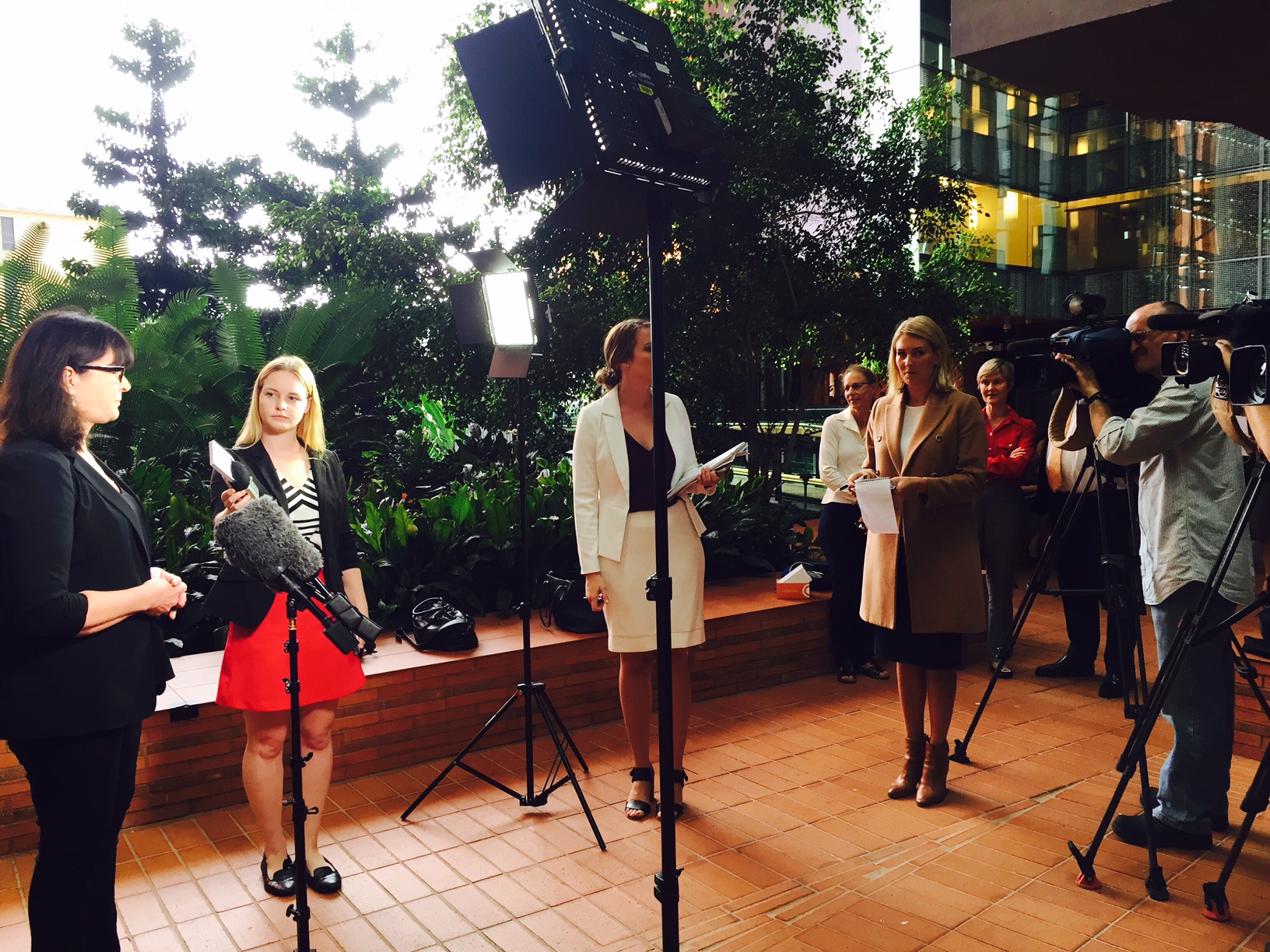Words by Caitlin Archbold, Communications Intern
Surrounded by fellow Cancer Council Queensland volunteers, my eyes cast up in awe to the high ceilings of the incredible building home to the Translational Research Institute at the Princess Alexandra Hospital.
We were there alongside volunteers from Melanoma Patients Australia and community members to witness the launch of Queensland’s first Centre for Research Excellence for the Study of Naevi. The air was abuzz with the excitement of skin care researchers to show their progress and volunteers to hear it.

Cancer Council Queensland’s Prof Joanne Aitken, speaks at the press conference.
A busy morning ahead of us and not sure what to expect, we were ushered into a room to hear Professor H. Peter Soya from the University of Queensland talk about the new research. We resonated with the researchers’ vision that “no one should die from melanoma” and leaned forward in our seats as Professor Soya outlined how they planned to turn this vision into reality.
Researchers from various institutions including Cancer Council Queensland are looking into four major studies to improve the early detection of melanoma. One part of the research has resulted in the development of an imaging device, which we were given the opportunity to view. It was great to hear about the research, but I think the most exciting part was being able to see the imaging device and how it worked first hand.
Reminding me of scaffolding, the prototype imaging device contains 46 cameras strapped to a steel frame to take photos of the patient from multiple angles. The images are then stitched together to create a 3D image with incredible detail. This allows specialised practitioners in different cities to be able to give advice on a particular mole without forcing the patient to bear the expense of a plane trip. It was amazing to see the level of detail produced by the cameras, though I felt a little bad for the model demonstrating in front of many pairs of eyes in his underwear.
The other studies involve looking into how genetics play a role in melanoma development and developing an iPhone app to encourage people to check their skin at home.
The morning not yet over, the researchers gave us the opportunity to share our experience with melanoma and checking our skin. As a university student and a fairly fresh face at Cancer Council Queensland, it was interesting (and a little scary) to hear people’s experience with melanoma. Perhaps the ease of an iPhone app will encourage more people my age to check their skin and catch things early.
Having our voices and opinions heard, the morning ended on a high and a feeling of comradery in looking towards a better future. I felt grateful to have had the opportunity to catch a glimpse inside the incredible research being done to makes lives that little bit better.
